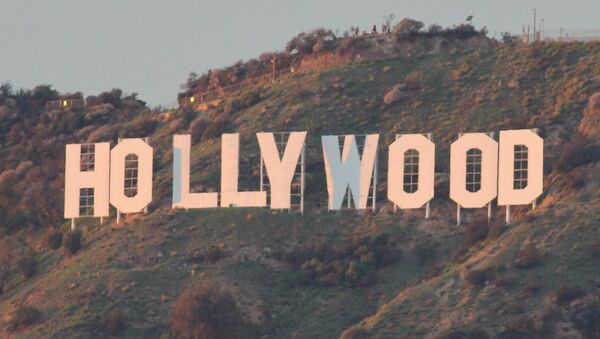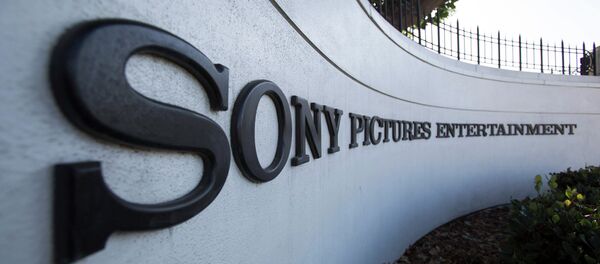"Pixels," a sci-fi comedy starring Adam Sandler in which aliens attack the Earth has just been approved for release in China, and will open in September 2015. Emails leaked from last year’s Sony hack reveal that this was the result of a series of calculated moves and changes made to the script by studio executives.
For example, in a 2013 version of the script, one scene involved the aliens blasting a hole in China’s national landmark, the Great Wall.
Referring to the scene, Sony’s Chief Representative in China Li Chow initially sent an email saying "This is fine as long as this is shown as part of a big scale world-wide destruction, meaning that it would be good to show several recognizable historical sites in different parts of the world being destroyed."
If you watch the movie, however, you’ll notice that while several national landmarks are destroyed by alien attackers, including India’s Taj Mahal and the US’s Washington Monument, the Chinese Great Wall is not one of them.
The scene was so heavily scrutinized by Sony executives out of fear of offending Chinese authorities, that it was eventually scrapped entirely from the final version of the movie.

"Even though breaking a hole on the Great Wall may not be a problem as long as it is part of a worldwide phenomenon," Chow wrote in another email in December 2013. "It is actually unnecessary because it will not benefit the China release at all. I would then, recommend not to do it."
In fact, despite being referenced several times in earlier scripts, there is not a single mention of China in the final version of the movie. This includes scenes that even hint at a possible Chinese reference.
For instance, in one such scene, characters of the US president and head of the CIA speculate that a "communist-conspiracy brother hacking into the mail server" used unknown technology to initiate the fictional attack. In the final version of the movie, however, Russia, Iran, and even Google, are mentioned as possible aggressors instead of China.
"China can be mentioned alongside other super powers," Li advised in another email. "And in view of recent news on China hacking into government servers, they may object to 'a communist-conspiracy brother hacked into the mail server.'"
Another email written by Li additionally indicates that when it comes to guessing over whether or not a scene may offend Chinese authorities, and subsequently prevent the movie from being released in the country’s theatres, Sony executives prefer to err on the side of caution.
"As to relocating the Pac-Man action from Tokyo to Shanghai, this is not a good idea because it will involve destruction all over the city and may likely cause some sensitivity," she said in the December email. "In other words, it is rather hard to say whether it would be a problem because the unwritten rule is that it is acceptable if there is no real intention in destroying a building or a street and if it is just collateral damage. But where would you draw the line?"
Emails also indicate that efforts to appease Chinese authorities have meant that Hollywood studios are essentially releasing movies globally, but with only the Chinese audience in mind. This is evidenced in an email sent by Steven O’Dell, president of Sony Pictures Releasing International, about a scene in the 2014 "RoboCop" movie.
In the December 2013 email, O’Dell discusses the possibility of relocating a multinational weapons conglomerate from China to a Southeast Asian country instead.
"Changing the China elements to another country should be relatively easy to fix," he wrote. "There is only downside to leaving the film as is. Recommendation is to change all versions as if we only change the China version, we set ourselves up for the press to call us out for this when bloggers invariably compare the versions and realize we changed the China setting just to pacify that market."
Looking at China’s growing box office, it’s hardly surprising that Hollywood studios are going the extra mile to ensure approval from the country’s authorities. While box office revenues in the United States and Canada combined have seen a decline in recent years, China’s have jumped by a staggering 34%.
According to Vice President of China’ Film Producer’s Association Weng Fenglin, at this rate of growth, China’s film market is set to overtake the United States’ and become the largest in the world within the next three years.
And just as Hollywood stands to gain millions from a Chinese release, not winning Beijing’s approval can just as easily cost film studios a lot of money. To put this in perspective, a memo circulated around Sony at the time of "Captain Phillips" release revealed that the movie will be $9m short of its projected earnings after it didn’t get approval for Chinese theater release.
"We need to grab every dollar we can to meet our objectives," the email said. "It is incumbent on all of us to try to figure out how we can get more money from this picture."
The email’s language, and the almost-desperate call to make up for such a massive loss, illustrates how much the movie industry in the United States has come to rely on the foreign market. With the Chinese box office growing at the rate it is, it’s likely that Hollywood movies will only become even more China-friendly.








